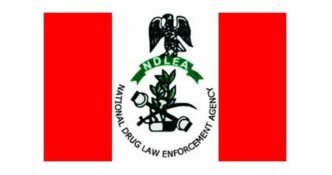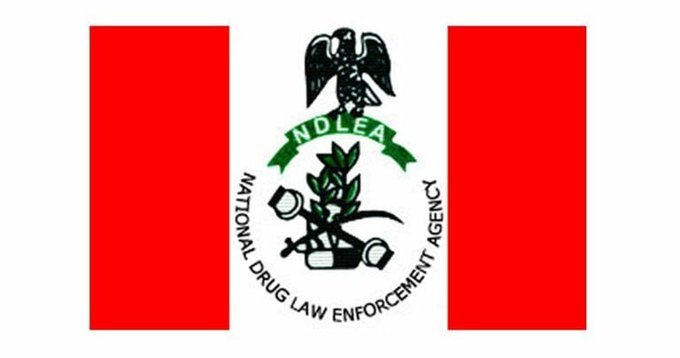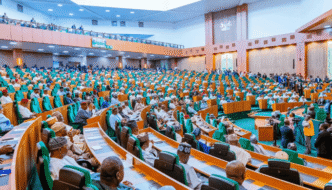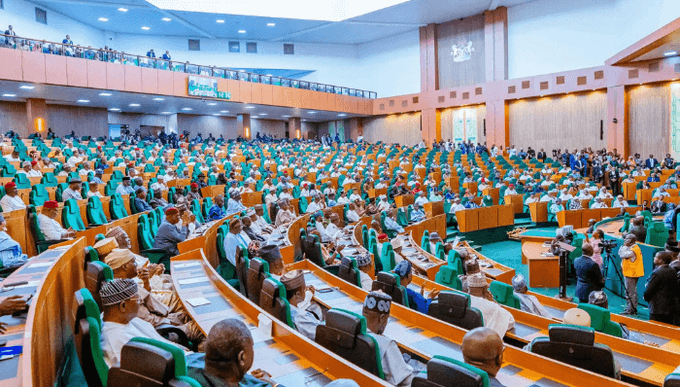Abuja, Nigeria — October 21, 2025
The Federal Road Safety Corps (FRSC) has announced plans to phase out the use of temporary driver’s licences across the country following major upgrades to its national printing infrastructure, enabling the Corps to produce 15,000 permanent driver’s licences daily.
This development marks a significant stride in the FRSC’s ongoing modernization drive, aimed at streamlining operations, eliminating delays, and ensuring faster delivery of driver’s licences to motorists nationwide.
The announcement was made on Monday by the Corps Marshal, Shehu Mohammed, at the FRSC National Headquarters in Abuja. Mohammed disclosed that with the new system, the Corps now has the capacity to clear all existing licence backlogs before the second week of November 2025.
“We have completely overhauled our driver’s licence production process,” Mohammed said. “With our upgraded facility, we can now print and dispatch up to 15,000 driver’s licences every day. This advancement means the era of waiting for months and relying on temporary licences will soon be over.”
A Move Toward Instant Licensing
The FRSC boss revealed that the agency’s long-term goal is to transition to a real-time licence issuance system, where motorists will receive their permanent licences within days of application, eliminating the need for temporary documents entirely.
“By the end of this year, Nigerians will no longer need to hold a temporary licence for extended periods,” he said. “We are setting new standards for efficiency and accountability in service delivery.”
The Corps Marshal explained that the temporary driver’s licence — usually valid for 60 days — was originally introduced to enable applicants to drive legally while waiting for the permanent version. However, due to technical constraints and production delays, many motorists ended up using the temporary licence for months or even years, leading to frustration and loss of public confidence in the system.
Technology Upgrade and Production Boost
According to the FRSC, the improved production capacity follows the installation of new high-speed printers and digital verification systems at its central and zonal processing centres.
The agency also enhanced its data integration with the National Identity Management Commission (NIMC) and the Nigeria Immigration Service (NIS) to ensure accuracy and prevent duplication of driver information.
FRSC’s Head of ICT, Engineer Chika Okafor, said the upgrade was part of the Smart Licensing Project launched earlier this year to automate every stage of licence processing.
“Our new digital infrastructure now allows for instant data validation, photo capture, and biometric matching,” Okafor explained. “Applications can be verified and approved within minutes, paving the way for faster licence printing and dispatch to state offices.”
He added that the agency is also introducing tracking features that will allow applicants to monitor the progress of their licence production and delivery through SMS or the FRSC’s official website.
Clearing the Backlog
FRSC confirmed that it is currently addressing a backlog estimated at over 400,000 pending driver’s licences across various states.
With the new printing capacity, the Corps projects that all outstanding licences will be produced and distributed before the second week of November 2025 — a commitment Mohammed said will restore confidence in the agency’s efficiency.
“We are aware of the public frustration caused by delays in licence issuance. I want to assure Nigerians that those days are coming to an end. By mid-November, every pending driver’s licence application will be cleared,” he stated.
Public Reaction and Stakeholder Support
The announcement has been met with widespread commendation from motorists, transport unions, and road safety advocates, many of whom have long criticized the persistent delays and inefficiencies in obtaining driver’s licences.
The National Union of Road Transport Workers (NURTW) hailed the initiative, describing it as a “game changer” for Nigerian road users.
“For years, drivers have suffered due to slow licence processing. This upgrade is long overdue, and we are glad to see FRSC taking decisive action,” said Comrade Kabiru Hassan, spokesperson for the union.
Similarly, the Automobile and Touring Club of Nigeria (ATCN) applauded the FRSC’s move to scrap temporary licences, calling it a step toward modernization and transparency.
“Eliminating temporary licences will help curb forgery and improve trust in the licensing process,” ATCN president Dr. Ifeoma Okonkwo noted. “The integration of digital systems is key to efficient road administration.”
Enhanced Security and Anti-Fraud Measures
Beyond efficiency, the FRSC emphasized that the upgraded system also comes with enhanced security features designed to combat forgery, duplication, and fake licence syndicates.
The new driver’s licence cards will include QR codes, holographic seals, and embedded chips that store biometric and vehicle information. These features, according to the agency, will make counterfeiting virtually impossible and facilitate quick roadside verification by law enforcement officers.
“We have worked closely with security experts and data analysts to ensure the new licences meet international standards,” said Deputy Corps Marshal (Operations), Bisi Kazeem. “Our goal is to make Nigerian driver’s licences not only faster to obtain but also among the most secure in Africa.”
Improved Service Delivery and Decentralization
To sustain the new production rate, FRSC disclosed that it has expanded its operational centres to key zonal hubs in Lagos, Port Harcourt, Enugu, Kano, and Kaduna. This decentralization, officials say, will ensure that printing and distribution are faster and less dependent on the Abuja headquarters.
The Corps also reaffirmed its commitment to maintaining 24-hour production cycles to meet the new daily target and ensure prompt service delivery to applicants nationwide.
What This Means for Motorists
With the phasing out of temporary licences, motorists applying for new or renewed licences can expect:
- Faster processing times (within 5–7 working days).
- Real-time tracking of application status.
- Permanent licences issued directly to the registered FRSC office or pick-up center.
- Reduction in fraud and extortion, as applicants will rely solely on verified FRSC channels.
Motorists currently holding valid temporary licences will continue to use them until their permanent ones are ready. However, once the new system is fully operational, all new applicants will receive only the permanent card upon completion of biometric and verification steps.
Looking Ahead
The FRSC’s decision to scrap temporary licences aligns with the Federal Government’s broader digital transformation agenda, which prioritizes efficiency, transparency, and service automation in public institutions.
Experts believe the move will also enhance Nigeria’s reputation in international transport compliance, especially as the country continues to integrate its vehicle and driver database with regional and global systems.
“The FRSC is redefining how public services should function in a digital era,” said transport analyst, Mr. Tope Adeniran. “If successfully implemented, this reform will save time, reduce corruption, and set a new benchmark for government agencies.”
Final Word from FRSC
Corps Marshal Shehu Mohammed reaffirmed the Corps’ commitment to ensuring safer roads and better public service delivery.
“Our duty is not only to enforce road safety laws but to serve Nigerians with efficiency and integrity,” he said. “This upgrade is a promise fulfilled — and we’re not stopping here.”














